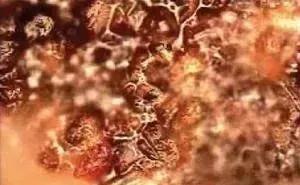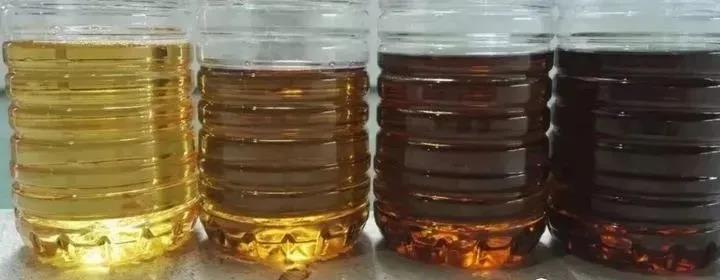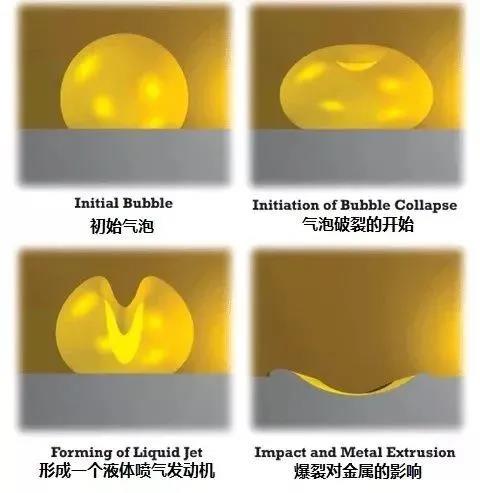
Privacy statement: Your privacy is very important to Us. Our company promises not to disclose your personal information to any external company with out your explicit permission.
![]() November 24, 2021
November 24, 2021
The oxidation of lubricating oil is the reaction of lubricating oil molecules and oxygen molecules, which will lead to an increase in viscosity and the production of sediments such as sludge, additives will be depleted, and the Base Oil will also be decomposed. Once the lubricating oil starts to oxidize, its acid value will begin to rise. The presence of acid will cause the beginning of equipment corrosion.

Temperature is a factor that needs to be paid attention to during the use of lubricating oil. No matter what kind of system, the lubricating oil will be affected by the operation of the equipment (friction, kinetic energy conversion, heat transfer) and increase the temperature. Once its temperature exceeds the temperature at which the oil can maintain a stable temperature, thermal cracking will occur and intensify.

When the tiny bubbles in the lubricating oil enter the high-pressure area from the low-pressure area, it will cause a micro-deflagration phenomenon, or cavitation, due to pressure changes. Microscopic deflagration will cause the oil around the small bubbles to be instantly heated and oxidized. The temperature of the bubble burst area can reach 1093 degrees Celsius (2000 degrees Fahrenheit). Violent micro-deflagration can make the equipment emit obvious noise and vibration.


What harm will the deterioration of equipment lubricating oil cause to equipment?
Continuing to use the deteriorated lubricating oil will undoubtedly be detrimental to the lubrication protection of the equipment. We have summarized the following 8 hazards:
1. The acidic substances generated by the oxidation and deterioration of the oil will corrode the metal contact surface;
2. Additives in the oil will be gradually consumed, resulting in a decrease in the thickness and strength of the lubricating oil film and increased mechanical wear;
3. Decreased oil lubrication, cooling and flow properties will accelerate metal surface fatigue;
4. Oil sludge will block the filter system, and related parts need to be cleaned or replaced;
5. Oil sludge will greatly shorten the service life of sealing and guiding materials;
6. Oxidized and dirty oil will affect the action of the valve, causing the valve to jam and the valve core to wear quickly;
7. The system response becomes slower and accompanied by irregular actions, and the pressure transmission performance of the hydraulic system is reduced;
Through the above analysis, we should know that the anti-oxidation performance, the use of non-zinc anti-wear additives, and the excellent air release performance of lubricants will definitely have better performance and anti-deterioration ability, and will naturally be able to work under the same environment and use conditions. Get better performance and achieve longer service life.
The lubricating oil system of many large power plants and steel smelting enterprises will be carefully cleaned before the first oil filling. Special flushing oil is used to clean the dust and other foreign objects that may exist in the equipment system; before adding new lubricating oil, the oil The product (new oil, conventional cleanliness level 7-9) is filtered to reach a higher level of cleanliness (such as level 5-6) and then injected into the system.
First of all, it is necessary to avoid the deterioration of the purchased lubricating oil during the storage process. For example, storage in the open air, in the sun and rain, and the storage area is wet or close to the heat source, which will affect the quality of the oil.
Through the analysis of the oil samples of the oil in use, the data of its viscosity, acid value, water content, cleanliness, metal particles and other indicators can be obtained, and the operating conditions of the equipment and the lubricating oil can be analyzed by comparing with the corresponding indicators of the new oil. The degree of degradation.
The above is the Deterioration, hazards and solutions of equipment lubricating grease we have listed for you. You can submit the following form to obtain more industry information we provide for you.
You can visit our website or contact us, and we will provide the latest consultation and solutions
Send Inquiry
Most Popular
lastest New
Send Inquiry
Send Inquiry

Mr. James
Tel:0086-371-58651986
Fax:
Mobile Phone:+8613783582233
Email:sales@cn-lubricantadditive.com
Address:No.11 Changchun Road, High-Tech Zone, Zhengzhou, Henan
Related Products List
Mobile Site


Privacy statement: Your privacy is very important to Us. Our company promises not to disclose your personal information to any external company with out your explicit permission.

Fill in more information so that we can get in touch with you faster
Privacy statement: Your privacy is very important to Us. Our company promises not to disclose your personal information to any external company with out your explicit permission.